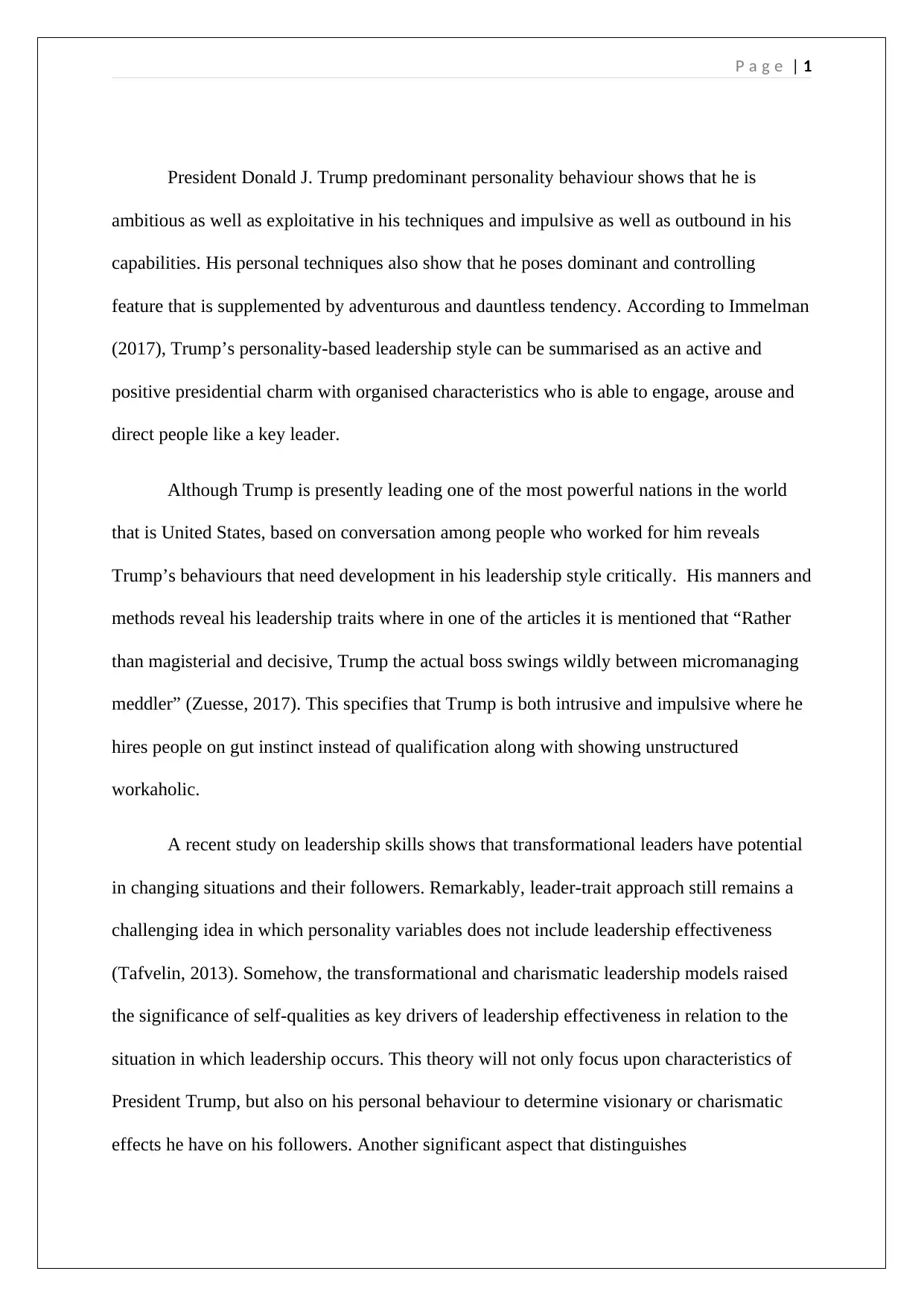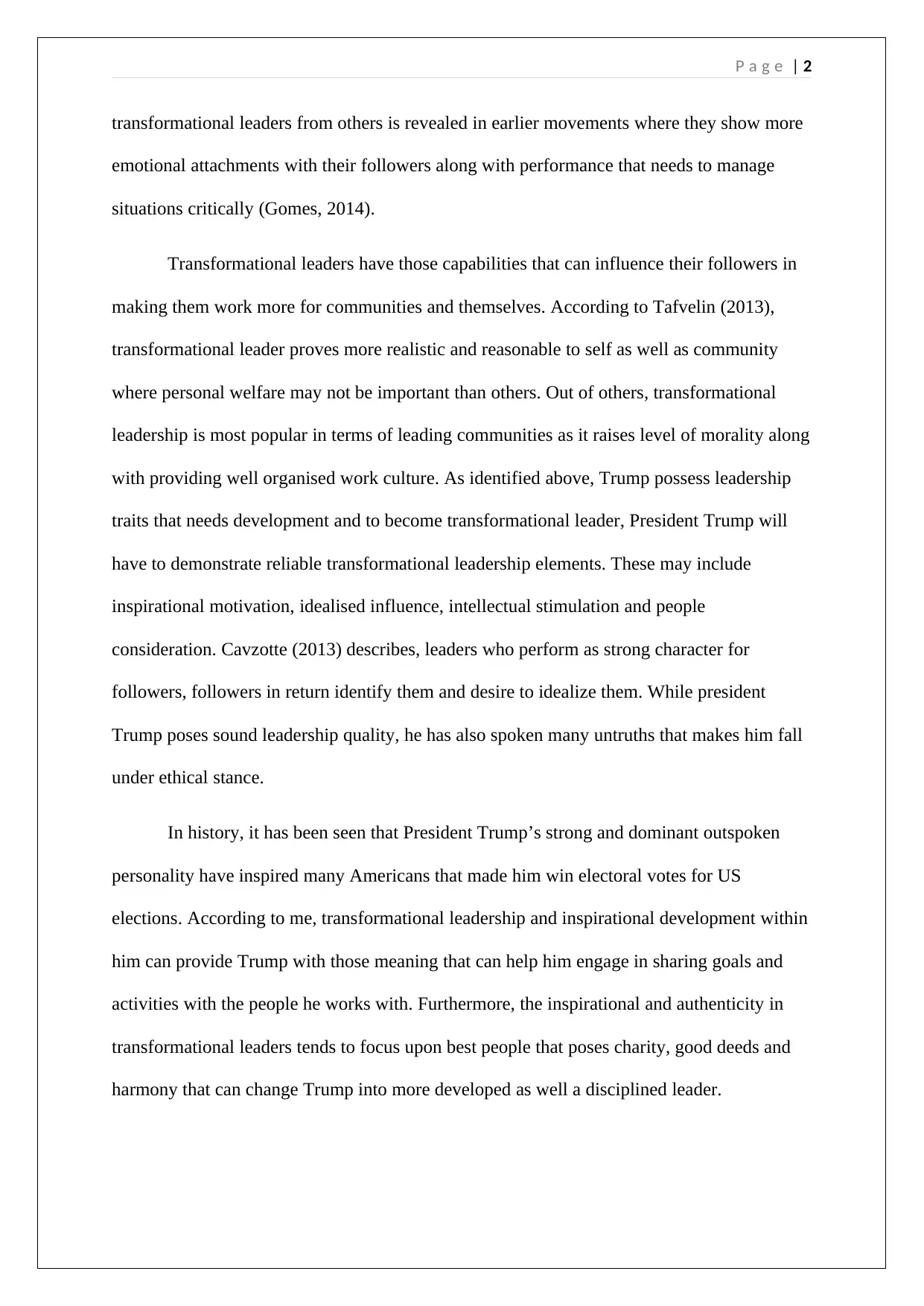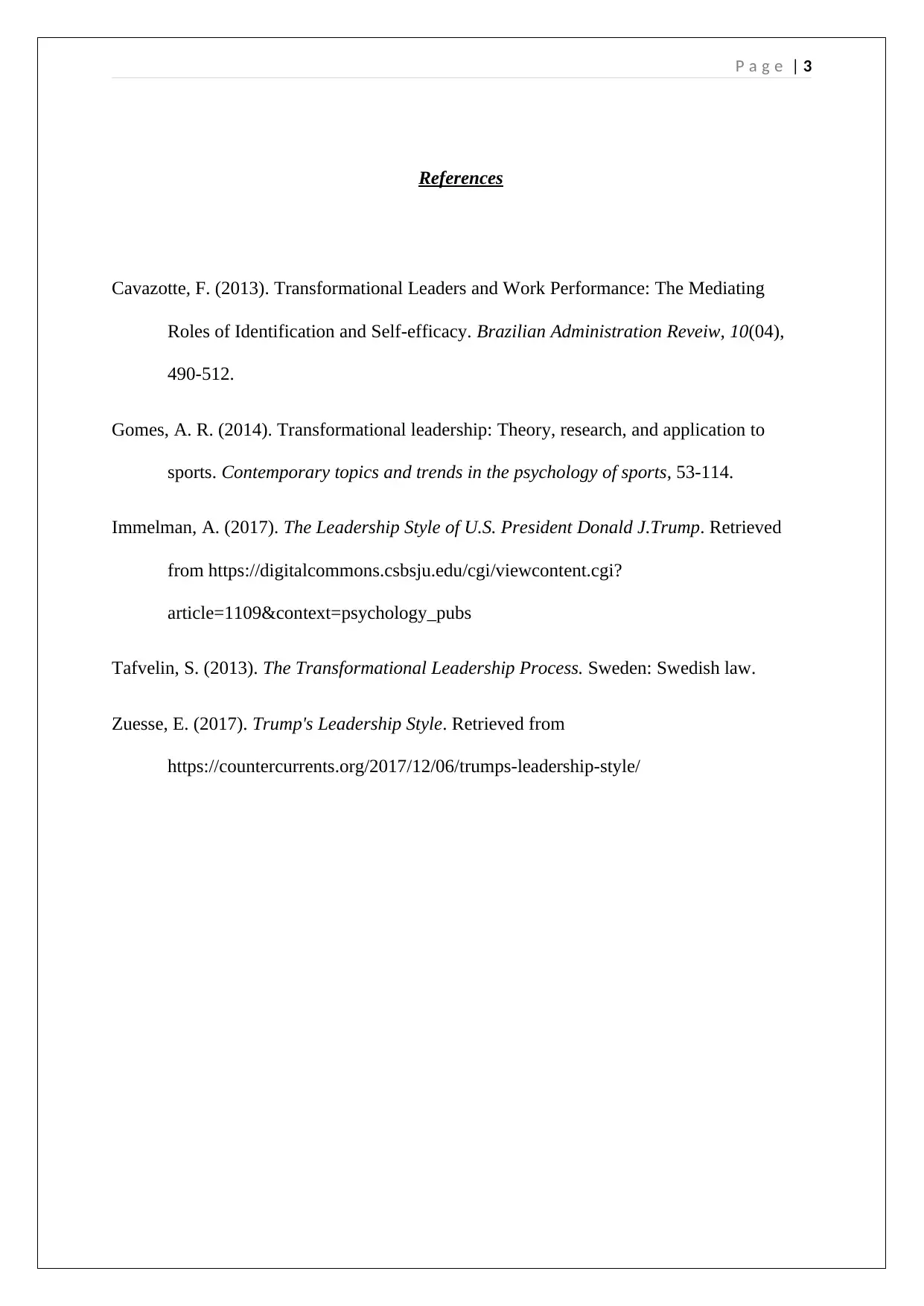Critical Analysis of Donald Trump's Leadership Skills and Strategies
VerifiedAdded on 2023/06/07
|4
|752
|131
Essay
AI Summary
This essay critically analyzes the leadership style of Donald J. Trump, focusing on his personality traits, behaviors, and potential for transformational leadership. It examines his ambitious and exploitative tendencies, as well as his impulsive and outgoing nature. The essay references Immelman's (2017) characterization of Trump's active and positive presidential style, while also acknowledging criticisms of his micromanaging and unstructured work habits. The study contrasts Trump's current leadership with the characteristics of transformational leaders, highlighting the importance of inspirational motivation, idealized influence, intellectual stimulation, and individual consideration. The essay concludes by suggesting how Trump could develop his leadership skills to become more transformational, focusing on the benefits of shared goals and activities, as well as a focus on charity and good deeds.
1 out of 4











![[object Object]](/_next/static/media/star-bottom.7253800d.svg)